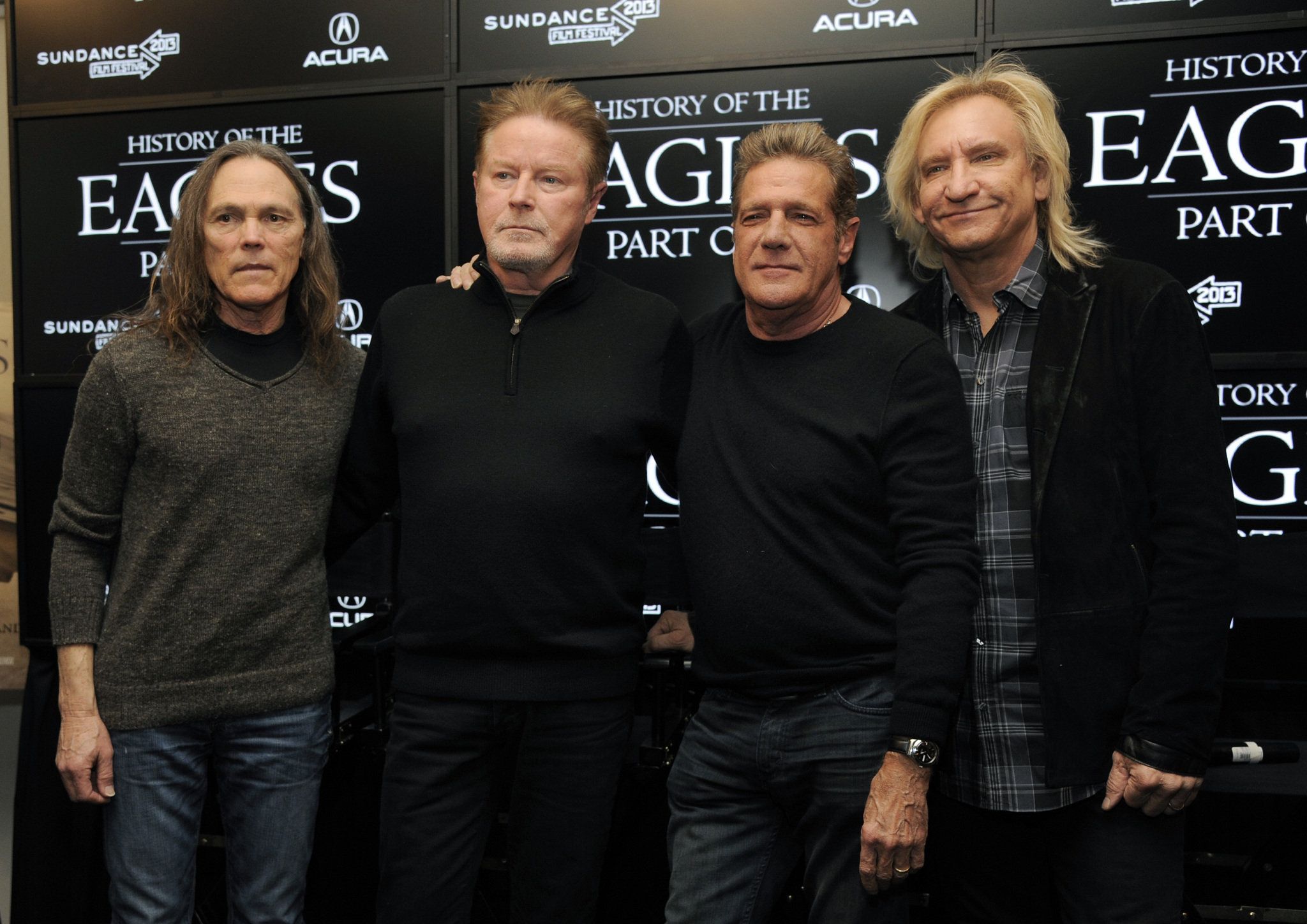
A Lush Mirage of Paradise Lost: The Seductive Illusion of the American Dream
When “Hotel California” was released as a single in February 1977, it swiftly ascended the charts, capturing the No. 1 spot on the Billboard Hot 100 and etching itself into the consciousness of a generation disillusioned with excess. Featured on The Eagles’ seminal album of the same name—Hotel California, released in December 1976—the track became not only the band’s signature song but also a haunting elegy for an era that had promised more than it delivered. As The Eagles transitioned from laid-back country rockers to sharp chroniclers of cultural decay, “Hotel California” emerged as their most ambitious and enigmatic composition—part cautionary tale, part existential reverie.
At its surface, “Hotel California” spins a surreal tale: a weary traveler arrives at a mysterious hotel that offers comfort and luxury but ultimately entraps him. Yet beneath this gothic narrative lies a richly layered critique of 1970s America—a time when the sun-soaked optimism of California’s countercultural promise had curdled into corporate gluttony and moral ambivalence. The lyrics, penned by Don Felder (music), Don Henley, and Glenn Frey (lyrics), are steeped in allegory. Lines like “You can check out any time you like, but you can never leave” evoke not only a chilling sense of entrapment but also a deeper spiritual malaise—a warning that indulgence, once embraced, becomes inescapable.
Musically, the song is masterful in its fusion of styles. Beginning with Felder’s iconic twelve-string acoustic guitar intro—both inviting and foreboding—it unfurls into a richly textured sonic landscape where Latin-tinged rhythms meet classic rock grandeur. Joe Walsh’s searing electric guitar solo in the outro is more than mere technical display; it is a visceral cry echoing the emotional desolation at the song’s heart. Each note seems to claw at the illusion of freedom, underscoring the song’s central irony: paradise can become purgatory.
Though often interpreted as a metaphor for hedonistic Los Angeles culture, “Hotel California” transcends its geography. It speaks to a broader disillusionment—the erosion of innocence in pursuit of success and beauty. In this way, it resonates beyond its era, offering successive generations a mirror through which to examine their own dreams and discontents.
For The Eagles, whose artistry reached its zenith with this track, “Hotel California” represents both culmination and confrontation: a reckoning with fame, fortune, and fallout. It remains one of rock music’s most enduring riddles—a shimmering mirage that draws you in with promises of escape, only to reveal how easily one becomes trapped within their own illusions.